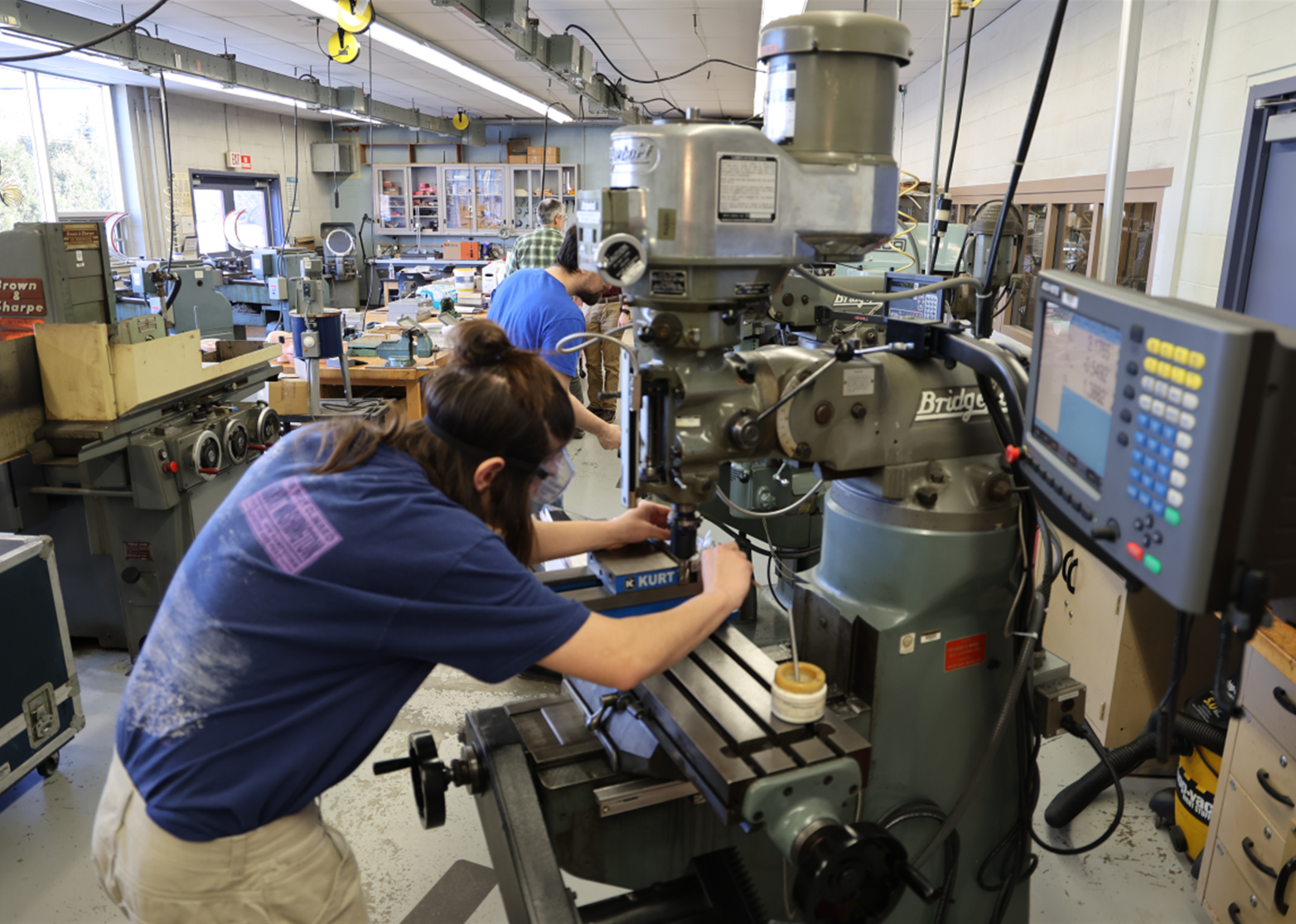This program is not currently accepting new students.

NHTI's Manufacturing Engineering Technology – Automation degree program educates you in the manufacturing field, emphasizing mathematics and science courses to give you the knowledge to cope with changing technology. Course work incorporates the theory and practice of manufacturing from planning and layout through the operation and control phases. Extensive computer applications are part of the program, including computer-aided drawing/modeling and automation in manufacturing. English and social sciences are taught to broaden your perspective and improve communication skills.
Do you have questions? Contact Dennis Tappin at dtappin@ccsnh.edu.
Applicants are required to have:
- At least three years of college preparatory math (Algebra I, Algebra II, and Geometry) with a C or higher
- All engineering technology applicants should have satisfactorily completed high school-level courses in Chemistry and Physics.
Graduates are employed in positions such as production planners, management assistants, material planners, and manufacturing engineering technicians.
First Year
Fall Semester
Spring Semester
Second Year
Fall Semester
Spring Semester
Program Learning Outcomes
Graduates are able to:
- Apply knowledge, techniques, skills, and modern tools of math, science, engineering, and technology to solve engineering problems.
- Design technical solutions and assist with the engineering design of systems, components, and processes.
- Apply written, oral, and graphical communication in technical and non-technical environments and
identify and use appropriate technical literature. - Conduct standard tests, measurements, and experiments and analyze and interpret the results.
- Function effectively as a member of a technical team.
Program Objectives
- Prepare graduates for professional entry-level positions with the engineering technical skills to meet the demands of industry in mechanical design, manufacturing, and industrial automation.
- Prepare graduates with the skills necessary to enter a four-year bachelor’s degree program.
- Prepare graduates with skills to meet the technical needs of an ever-changing society.
- Prepare graduates to communicate in a diverse world with respect to social awareness and ethical issues.
Read More About this Program!
MFET: Building Confidence and Technological Competence
Engineering vs Engineering Technology: What You Need to Know

